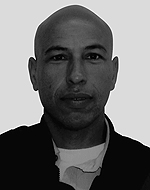Son of Gaul and Salman. He was born on 21 July 1963 in the Negev. A brother to six, a father to ten. Ahmad Abu Zakika joined the IDF on March 3, 1988, as a battalion commander (reconnaissance battalion) 585. After basic training, he went to a squad commanders’ course and was commander of the squadron’s squadron. In the course of his service, he changed his military career to Gashash. As a tracker, Ahmed received great respect among his commanders, friends and family. In 1991 he was drafted into the standing army in the Scouts Unit and served in the 33rd Corps until 1995 and in the western sector until 1999. For his outstanding participation in the pursuit and many successes in uncovering infiltrators and their perception of the Edom Division, he was awarded a parachute training course in 1998, Head of staff), and Ahmad went on a tour of resistors in Europe for twenty-one days, and in June 1999 he was assigned to a position as commander of the Hagashim unit, and on June 30, 2002, As a battalion tracker in an incident in which the battalion commander was wounded, and two terrorists were identified, and Ahmed pursued them deep into the area and identified an explosive charge. He was active in events at Gesher Mor (Gush Katif), in the “Koruzim Kissufim” and in others, since he served in all areas of the command and excelled, Ahmed received a scholarship for academic studies, and he completed industrial and management studies at the Technological College of Bahad 20. . Ahmed was a prominent, professional, diligent and thorough, but timid seeker. “He had great ability and motivation,” said Colonel Pini Ganon, commander of the former scouts unit. Ahmed was supposed to move to Central Command as part of a tour of scouts, but the committee, headed by the commander of the scouts, denied his request to move to Central Command due to his relatively advanced age. Ahmed was then summoned to report to the Ground Forces Commander in the office of the head of the permanent division and the Hagashim for an interview prior to his retirement from the IDF during 2007. This interview was not enough for Ahmad to appear on Tuesday morning, September 12. 2006, an IDF force operated in Kissufim to locate tunnels dug along the fence and was headed by Ahmed. During the searches carried out in the vicinity of the security fence, two Palestinians opened fire at the force. In the course of the battle, Ahmad was wounded by a bullet to the head, and medical forces summoned to the area tried to stabilize his condition, and a helicopter was called to evacuate him, but he died of his wounds. Abu Zakika was killed in an operational operation at the age of forty-four, leaving behind his parents, two brothers and four sisters, two women and ten children. The family. As is customary in the Bedouin sector, only men – relatives, friends, members of the unit and current and former army commanders – accompanied him on his last journey. At the end of the funeral, the participants gathered in the mourners’ tent set up in Ahmad’s house. “We lost one of our good soldiers,” said Col. Pini Ganon, coordinator of activities in the minority sector of the Defense Ministry’s social-security department. “I met him for eleven years, volunteering to serve in the IDF as a scout and was one of the leading detectives in the Southern Command. This is one of the most professional I know. “From his first marriage to Nadia, Ahmad had ten children, shortly before his death,” wrote officer Harel Elbaz, who served in Gaza, “I knew him personally, a modest and serious man in his work.” He married Zohara in a Muslim religious marriage, and a relative said: “He was a good person, a professional who also helped and investedIn the army and at home, even though he did not spend much time there. “
